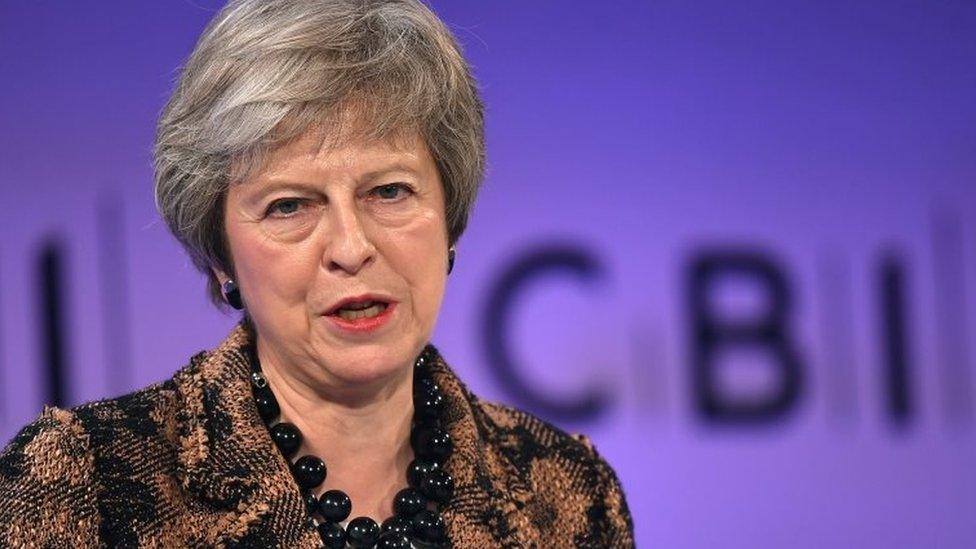No-deal Brexit 'would leave business on brink of chaos'
- Published
- comments
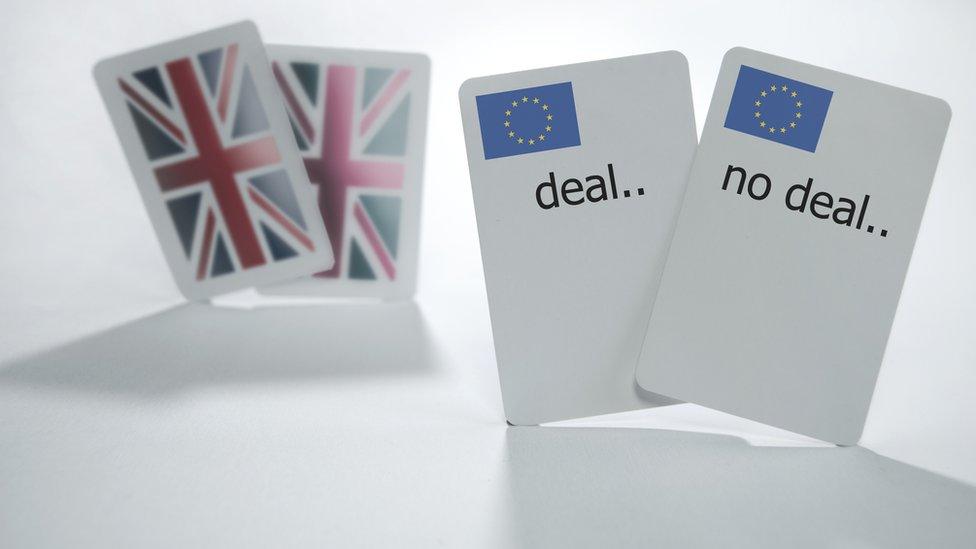
A no-deal Brexit would leave businesses in Northern Ireland "on the brink of chaos", according to the director of the Confederation of British Industry (CBI) in Northern Ireland.
Last week, a draft EU-UK deal was revealed, setting out what a future relationship could look like.
Angela McGowan told BBC News NI the CBI was "broadly supportive" of the deal.
Northern Ireland Secretary Karen Bradley urged the business community to continue speaking out for the deal.
Speaking to CBI members in Belfast, she said the deal assured the economic and constitutional integrity of the UK and said she was "disappointed" in media coverage of the draft agreement.
Ms McGowan said that while the CBI supported the agreement, there were some aspects it hoped "will be ironed out".
Allow X content?
This article contains content provided by X. We ask for your permission before anything is loaded, as they may be using cookies and other technologies. You may want to read X’s cookie policy, external and privacy policy, external before accepting. To view this content choose ‘accept and continue’.
The DUP, which is in a confidence-and-supply agreement with the Conservatives, has been highly critical of the withdrawal draft.
In particular, it has aired concerns regarding the backstop arrangement.
Many businesses cautiously welcomed the draft deal.
Speaking on the BBC's Good Morning Ulster programme, Ms McGowan said the backstop may never have to be used.
"We're hoping we don't even need that backstop agreement because what we hope to see this week is the high level principles as to how we will trade in the future," she said.
"This opens the path for the UK government to start moving on to that frictionless trade deal that we hope to get with the EU and that the backstop isn't even needed."
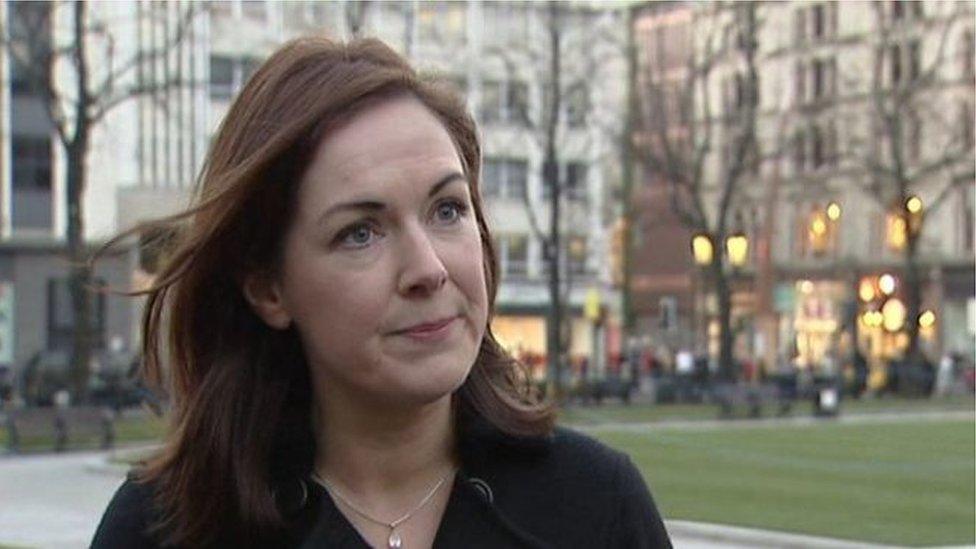
Angela McGowan says a no-deal Brexit would not be good for businesses
Ms McGowan said a no-deal Brexit was "not an option" for businesses or the health service.
'Precious United Kingdom'
Meanwhile, the head of the Northern Ireland Civil Service reiterated his concerns about the effect of a no-deal Brexit on the region's economy.
David Sterling said the civil service "would share the concerns of many across the community in business and elsewhere, that a chaotic or disorderly no deal would be very bad for us locally".
In her speech to the CBI, Karen Bradley hit out at "disappointing" media coverage over the fall-out from the draft agreement.
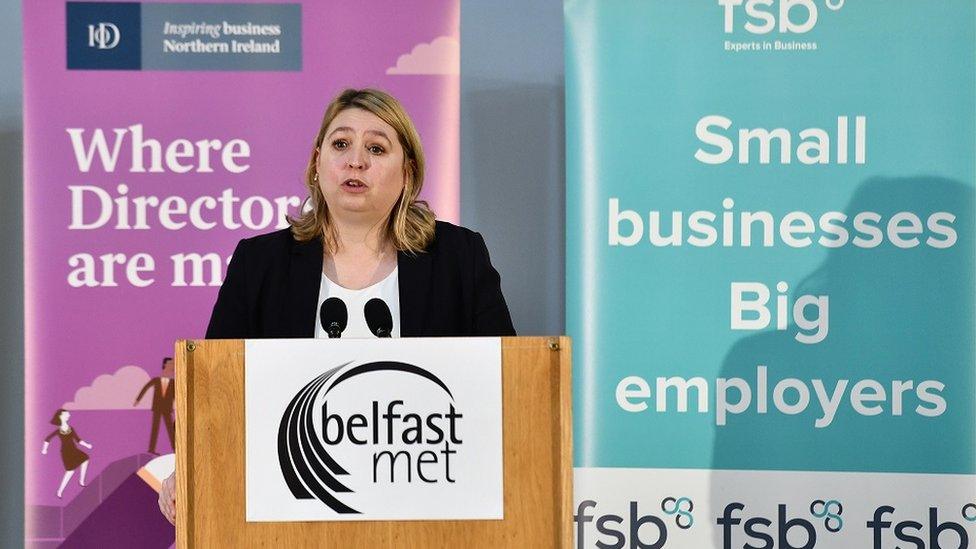
Karen Bradley said the draft agreement was in the national interest
Ms Bradley made no mention of the DUP by name, but reports have said there has been a rift between the party and business and farming leaders, who have said the deal should be supported.
The Northern Ireland secretary was asked about the reported row at the meeting of business figures on Monday.
She said: "It's disappointing some of the coverage that there has been since the deal, in that it has been something portrayed as an attack on any one party or politician.
"I'm not standing here saying that those politicians who have a difference of opinion with me on this matter are anything other than acting in what they consider to be the best interests of of constituents."
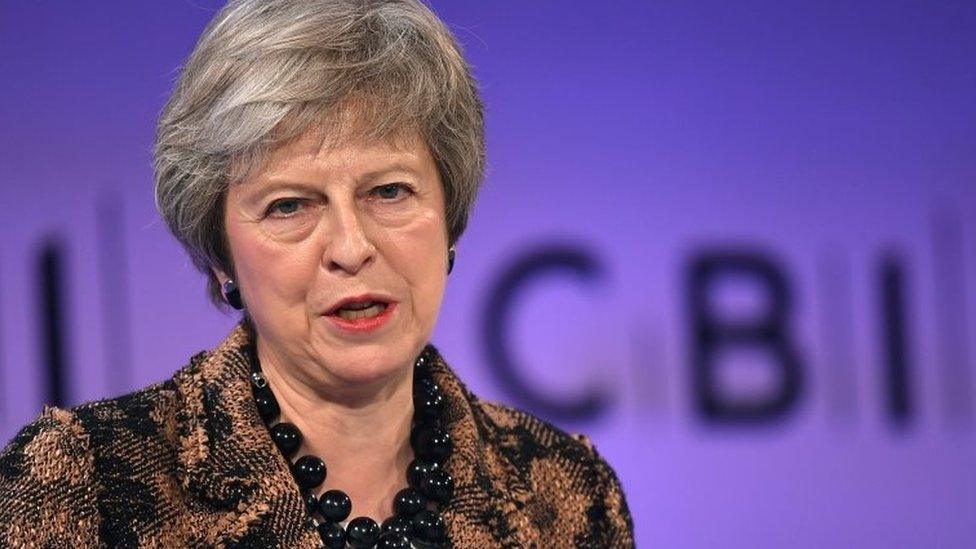
Theresa May said her draft Brexit withdrawal agreement would stop EU migrants "jumping the queue"
Ms Bradley also told business leaders that the country now faced a choice between the only workable deal that fulfilled the will of the referendum, or being "back to square one on Brexit".
She added that the deal will protect jobs, national security, business across the UK and will aid a productive future relationship with the EU.
Theresa May has been renewing her efforts to sell her draft Brexit withdrawal agreement to CBI business leaders.
The prime minister said migration would become skills-based, with Europeans no longer prioritised over "engineers from Sydney or software developers from Delhi".
Allow X content?
This article contains content provided by X. We ask for your permission before anything is loaded, as they may be using cookies and other technologies. You may want to read X’s cookie policy, external and privacy policy, external before accepting. To view this content choose ‘accept and continue’.
Mrs May also made reference to Wrightbus in Ballymena, County Antrim, in relation to jobs and growth within the UK's automotive industry.
She told CBI business leaders: "Since 2010, our manufacturing output has increased by 9%, but in auto manufacturing the growth has been 60%.
"Nissan in Sunderland, Jaguar Land Rover in Coventry, Alexander Dennis in Falkirk, Honda in Swindon, Vauxhall at Ellesmere Port, Wrightbus in Ballymena.
"These firms support tens of thousands of jobs - both directly and indirectly. Often they are at the heart of their local economies."
Common Travel Area
Meanwhile, the UK government has reiterated that the Common Travel Area (CTA) will continue to operate even if there is no Brexit deal.
The CTA gives UK and Irish citizens certain reciprocal rights in each others' countries.
Earlier, Ms Bradley appeared to suggest the CTA was dependent on a deal.
A UK government spokesperson said the government was "clear that the CTA would be protected."
They also pointed to a "no deal" notice published in September which said "the CTA has proven to be resilient over the years and would continue to endure if there is no deal".
The CTA is an arrangement between the UK and Ireland which pre-dates their membership of the European Union
The current version of IT has been developed since 1952 and at its legal core are immigration rules that each part of the CTA operates and enforces.
Those rules allow citizens of CTA countries to have open-ended residence in each others' countries.
Other rights flow from that including healthcare, employment and social security.
- Published18 November 2018
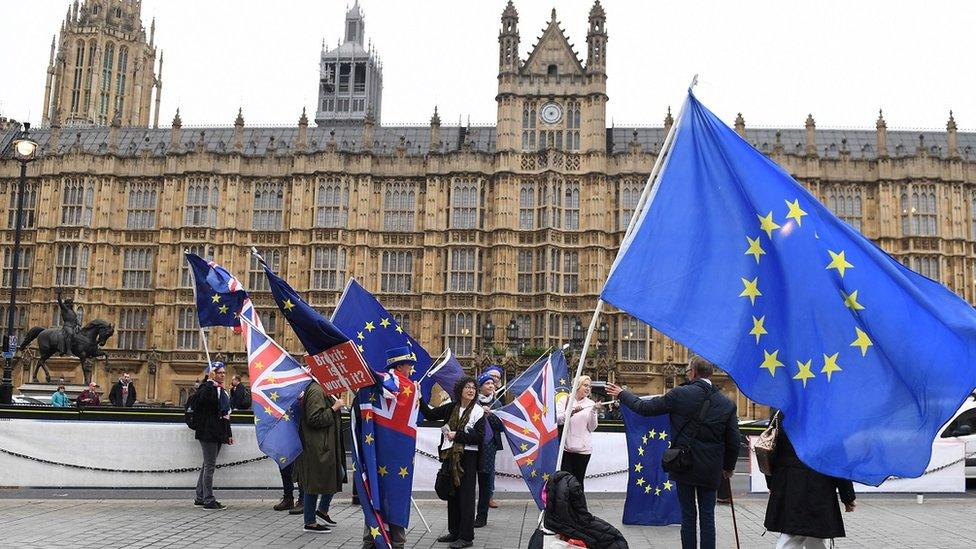
- Published15 November 2018
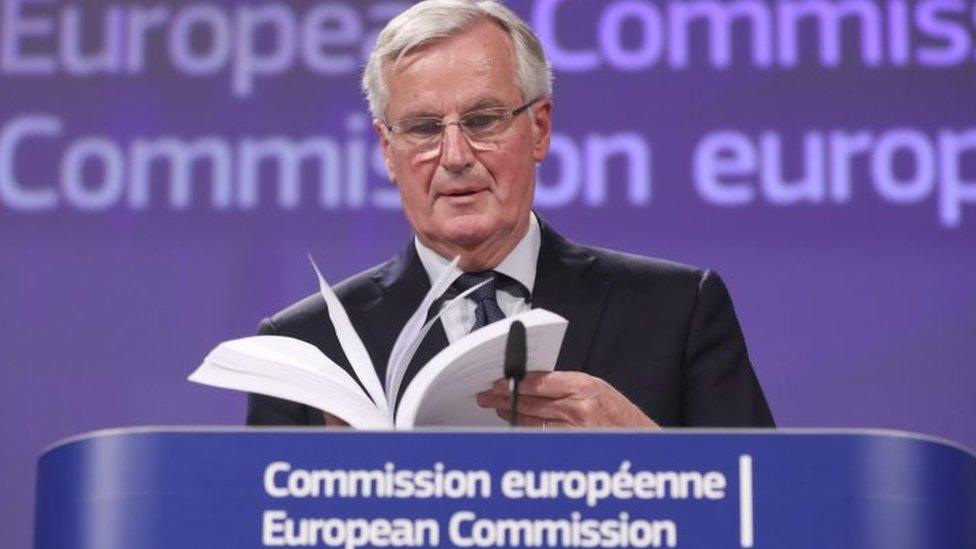
- Published18 November 2018
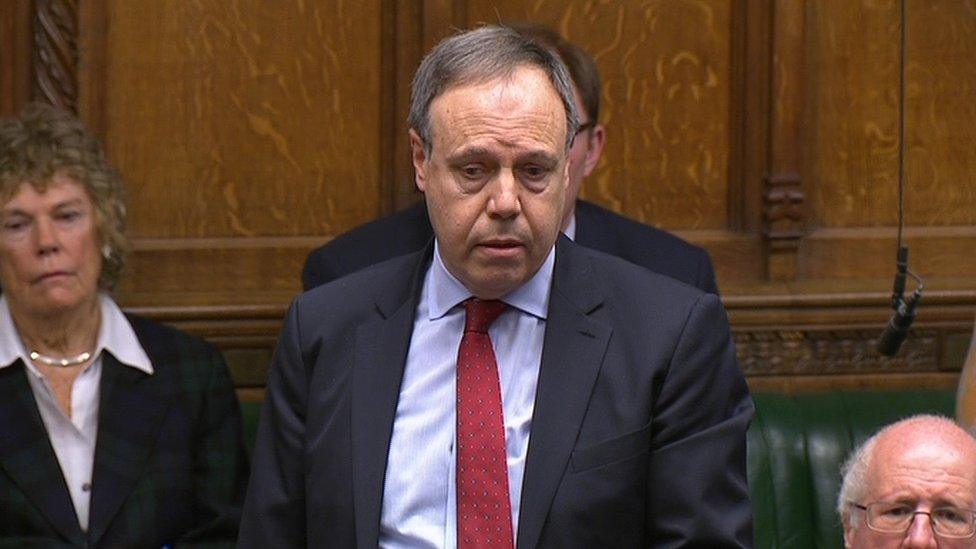
- Published19 November 2018
